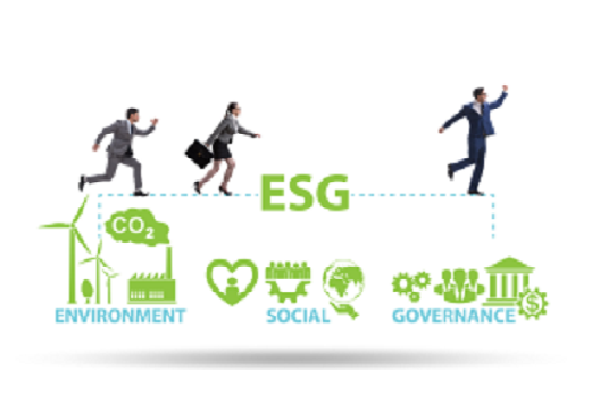
When profit merges with sustainability
Sustainability – in its widest sense – represents the North Star of the present millenium, a concept to be transformed into a tool for responsibly facing the present time and guarantee our future. ESG develops within a sustainabile economy scenario, where environment, social values and good governance play a prominent role.
New ideas and initiatives started taking shape towards the end of last century, under the name of Triple Bottom Line – aka PPP – People, Planet and Profit – in which profit was not the only “main character”. Such concept morphed into the ESG factors, today widely established in the financial sector and corner stone of SRI (Socially Responsible Investing).
Criteria
ESG – Environmental, Social and Governance – refers to parameters structured around three criteria, used to evaluate the sustainability of organizations and investments.
– Environment, responsability toward the planet: productivity efficiency; respect for natural resources; attention to biodiversity; agri-food safety; reduction of CO2 emissions.
– Social, refers to the activities with a high level impact on the collectivity: respect for human, civil and employment rights; diversity related policies (gender, ethnicity, etc.); adequate working conditions; respects for child labor laws; equality and inclusion.
– Management, corporate governance responsibility: strategies and remuneration; respect for meritocracy and shareholders rights; remuneration of Board and Exectuvie Committee members.
Virtuous Circle and analysis
Actions based on the above listed criteria aim at sparking a virtuous circle where companies, while generating value for everybody, have better probability of success and higher profits.
Observation of the way companies function in society and study of trends and forecast become of paramount importance for ESG analysis, as it can help investors in reaching better informed decisions who, in turn, can act in a more responsabile way through mid and long term strategies.
Data and rating
Many agencies specialized in collecting and analyzing data on sustainability, elaborate and provide companies ESG classification. Companies scoring high on the various ranking usually distinguish themselves for good management and orientation to future, a relevant aspect for investors who are more and more aware of the high value of a company long term performance capability.
Forward thinking
A forward thinking approach does not only elicit investors interest, it is also a wyse approach considering the disputive effect that factors such as climate changes, aging population, wars and inequalities will have on the global financial market.
An enhanced value of the “long term” approach, implicitly disavows the theories supporting the idea that responsible actions do not match with profits. On the contrary, it highlights the need of it. Looking at the committment to the environment, it should be considered that the good health of our planet and of the people living on it goes hand in hand with the market health. Obvious, but true.



Recent Comments